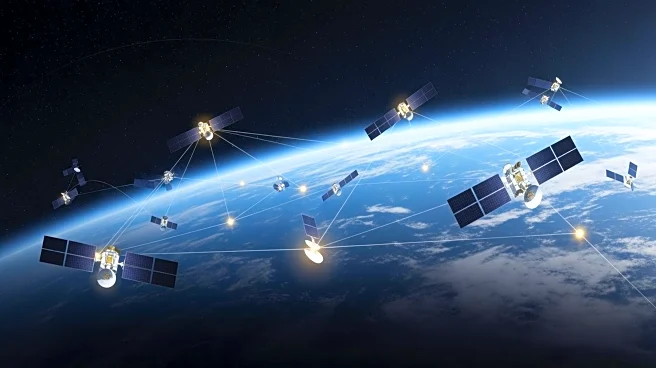What's Happening?
SpaceX has launched its 10,000th Starlink satellite, solidifying Elon Musk's control over two-thirds of all active satellites in low-Earth orbit. As of October 20, SpaceX's Starlink constellation comprises 8,562 of the 12,955 active satellites, according
to data from Celestrak. This dominance has raised concerns about the power Musk wields through the Starlink network. SpaceX's closest competitor, OneWeb, operates 651 satellites, while Chinese initiatives aim to surpass 10,000 satellites by the 2030s.
Why It's Important?
Musk's control over the majority of active satellites has significant implications for global communications and data access. The Starlink network's expansion enhances SpaceX's ability to provide internet services worldwide, potentially impacting telecommunications industries and regulatory frameworks. Concerns about Musk's influence highlight the need for discussions on satellite governance and the ethical implications of private control over space infrastructure.
Beyond the Headlines
The dominance of SpaceX's Starlink network raises questions about the concentration of power in the hands of private entities. The ethical and regulatory challenges associated with satellite control could lead to increased scrutiny and calls for international cooperation in space governance. The long-term impact on global communications and data privacy remains a critical area for exploration.
















